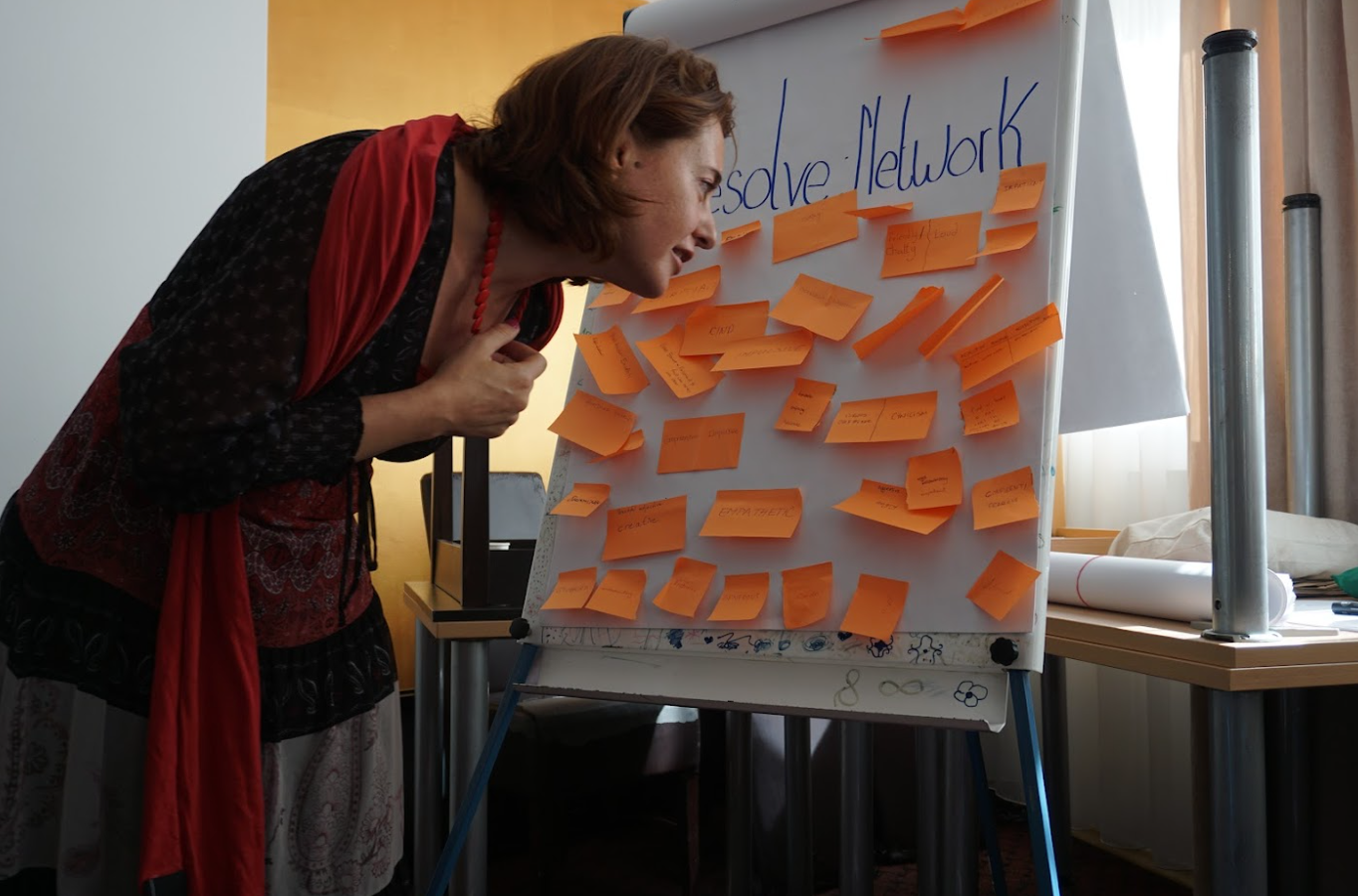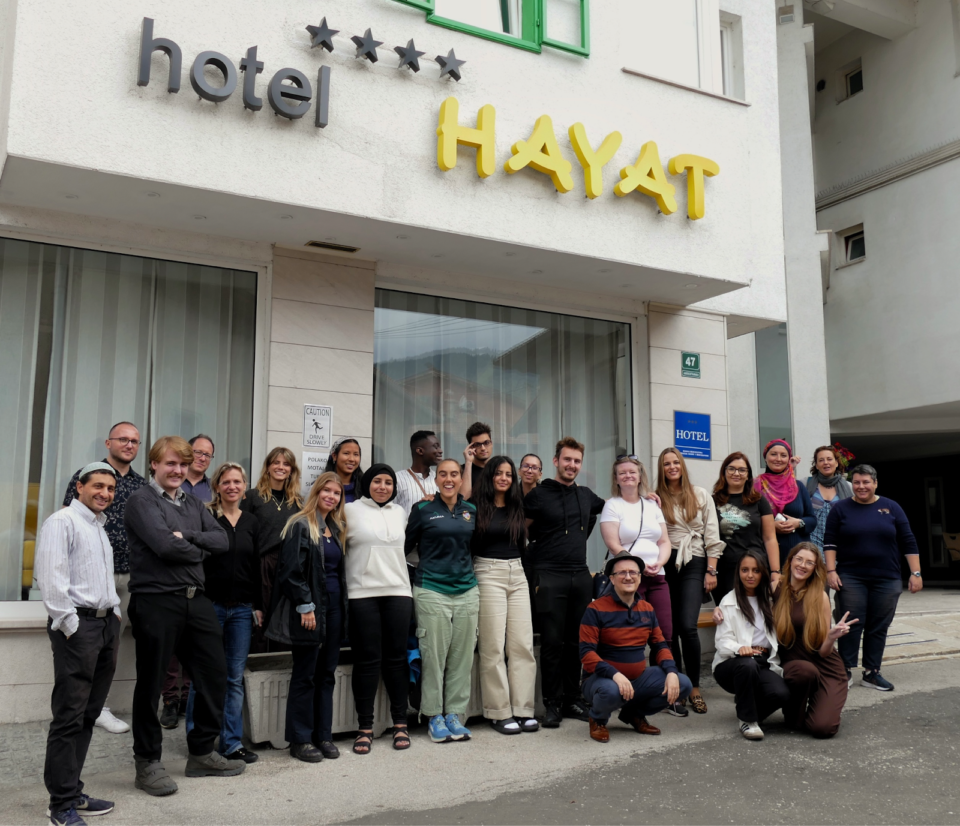
During the RESOLVE: Network Conference 2024 from September 17th to the 19th, organised by the NGO Asfar, we had the privilege of hearing from local and international leaders of peacebuilding and youth engagement. The first day welcomed the topic of youth lead peacebuilding with keynote speakers, including our very own Tatjana Milovanović from PCRC. Leaders from Peace Academy, MLB Consultancy and other education sectors were also present to emphasise tokenism in contrast to the inclusion of all perspectives in peacebuilding for real impact.
Our second day focused on remembrance and storytelling with the most impactful speaker for us, peacebuilder Jo Berry. Through her story, we learned that the hardest part of peacemaking is being empathetic towards those that may not necessarily reciprocate; and that understanding those we disagree with is an important part in humanising those we tend to ‘other’.
Günter Bressau was also featured and shared his work with youths in peacebuilding and the project of REspect! to combat hate speech and the rise of right wing extremism in Germany. His intervention displayed the importance of monitoring hate speech in the public sphere and how it relates to new trends amongst society.
We concluded the conference reflecting upon inclusion in peacebuilding, circling back to the topics of day one as well. Sharehan Alwakily and Steven Aiello, from Debate for Peace, gave first hand accounts of the struggle of women in negotiations. Her inspiring story of defying the status quo to educate women from unrecognised Bedouin communities in the south of Israel shed light on daily challenges faced by women within patriarchal societies. Simulations were further conducted to gain a deeper understanding of the result of translations, bias and misinterpretation.
Taking the conference as a whole, Jo Berry’s story of reconciling and peace building stood out to us at PCRC. In 1984, her father was killed in an IRA bombing. When the man responsible, Patrick Magee, was released as part of the peace process, there were many conflicting feelings. Jo believes that “Dehumanisation is the nature of violence”, and made it her mission to meet with Patrick for an honest conversation to ‘re-humanise’ the relationship she had to her father’s killer.
40 years on, her and Patrick now work together on peace and reconciliation efforts globally. We thought their ability to build a working relationship from this basis is a leading example of when the will exists to build a better future between former enemies, it can be achieved for both parties.
Whether it was other youths or professionals with over 20 years of experience in peace-building, everyone felt they had gained valuable insights from participating. We were able to connect these stories and lessons of peacebuilding to not only current events, but to personal experiences and relationships. All participants expressed a deep appreciation to those that voiced their stories; and we hope to apply the many lessons learned for our work here at PCRC.



